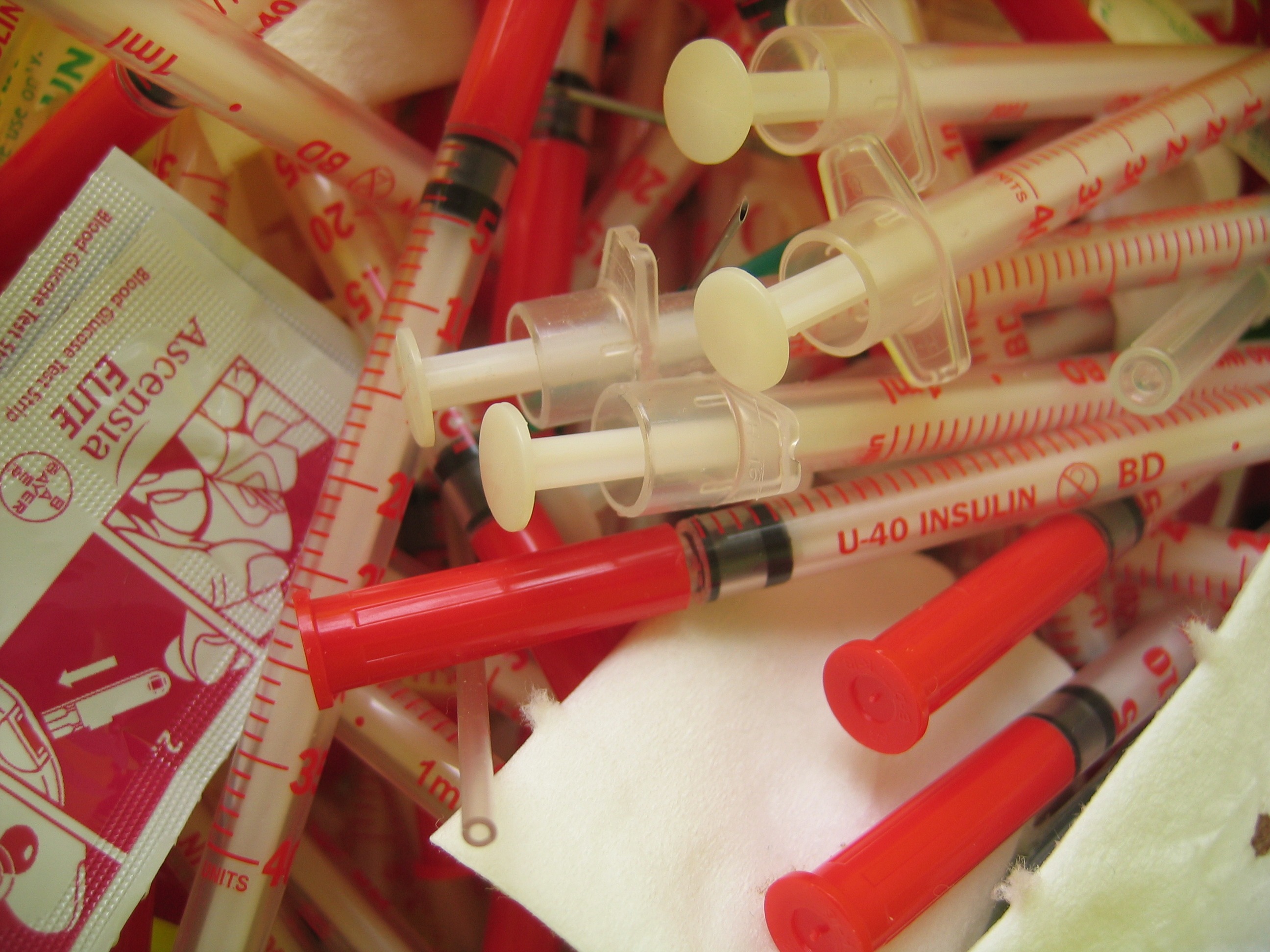Packaging Sharps and Lab Glass Waste poster
Display this poster in your laboratory for guidance on properly packaging sharps waste and lab glass and plastic waste.
Display this poster in your laboratory for guidance on properly packaging sharps waste and lab glass and plastic waste.
The Biohazardous Waste Management Plan describes the requirements for management of biohazardous waste and methods for compliance to regulations governing handling and disposal of biohazardous waste.

Sharps waste is regulated by state law and requires special handling. Sharps are instruments used to puncture or cut body parts. In a waste container, sharps can cause cuts, punctures and potential exposure to waste handlers.
Laboratory glass and plastic waste are not technically sharps but can puncture regular waste bags and injure waste handlers. The rules for packaging and disposal of laboratory glass and plastic waste differ depending on whether or not the items are contaminated.
Biological safety cabinets (BSCs) are used to protect personnel, products and the environment from exposure to biohazards and cross contamination during routine procedures.
EH&S provides information and resources to laboratory personnel and principal investigators to identify, package and properly decontaminate biohazardous waste.
The UW Core Bloodborne Pathogens (BBP) Exposure Control Plan is contained in Appendix A of the UW Biosafety Manual.
PIs/supervisors must develop a site-specific BBP Exposure Control Plan (Word) as a supplement to the UW’s core BBP Exposure Control Plan in Appendix A of the UW Biosafety Manual. The site-specific plan identifies who is covered by the plan, personal protective equipment (PPE) for each task, decontamination procedures and first aid/exposure response procedures.
You might need respiratory protection if inhalation hazards exist in your work environment. If you wear a respirator at UW, you must use it according to the UW Respiratory Protection Program, which is designed to protect employees and students by establishing accepted practices for assessing respiratory hazards and selecting, using and caring for respirators.
University supervisors submit a Respirator Request Form to EH&S, when respiratory hazards are first identified, when processes change that may impact respiratory hazards, and annually thereafter.
The Federal Select Agent Program regulates all work with select agents and toxins, including possession, use and transfer. Researchers at the UW working with select agents and toxins are required to enroll in the UW Select Agent Program before they can begin work.